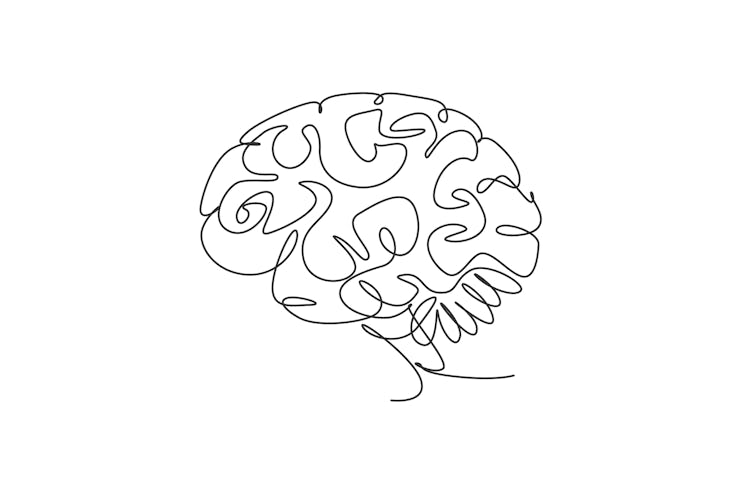Strange study hints at how to make the brain younger
Plus: How bad rockets are for Earth?

When I’m 64, will you put the poop of a teenager into my intestines?
Stay with me.
Wild new research shows that old mice who had feces from young mice put into their intestines started to show the brain behavior of young mice.
Now, it’s just mice—one of those “(in mice)” studies. But here are the facts: The team studied how the older mice’s spatial memory — remembering information needed to plan a route — changed following the transplant using a water maze test.
Older mice with or without a fecal transplant were placed in a water maze where they needed to plan and follow a path to get to a dry platform.
Older mice who had got the fecal transplant found the platform with greater success than mice without the transplant. This indicates that certain gut bacteria could influence cognitive functions that tend to decline with age, like memory.
Read more on that story below, I’m Nick Lucchesi, an editor at Inverse. Thanks for being with us today.
This is an adapted version of the Inverse Daily newsletter for Wednesday, November 24, 2021. Subscribe for free and earn rewards for reading every day in your inbox. ✉️
They did what?
Reverse aging in the brain
Thirty is a special age. You’re over the high-school awkward phase, you probably make more money than you did at age 20, and you’ve maybe even found a group of friends who like the same things you like. But thirty is perhaps also the time you start to notice physical signs of aging. And while a daily skincare routine can help you age gracefully on the outside. On the inside, though, there is no cream to smooth the metaphorical “wrinkles” in the inevitable aging of the human brain.
An aging brain can negatively affect your thinking, learning, and memory. You can work on Sudoku puzzles and exercise to delay cognitive decline, but such entropy is unavoidable unless you’re Dorian Gray.
But research published earlier this year may offer the closest solution yet to dousing yourself in a (murky-watered) fountain of youth. In a study published in the journal Nature Aging, scientists suggest that older mice given gut bacteria transplants from younger mice show learning and memory abilities similar to those of the younger rodents. In other words, the gut bacteria transplant appeared to reverse some of their brain’s decline.
Related:
Has the right to remain silent.
Does nature have legal rights?
[By Tara Yarlagadda]
Mother Nature is taking humans to court. Three recent legal suits, ranging from the rights of wild rice on U.S. tribal lands to Pablo Escobar’s “cocaine hippos” in Colombia, have brought nature front and center into the heart of a burgeoning legal movement — both in the U.S. and abroad. Does nature — plants, animals, and even river ecosystems — have legal rights in the eyes of the law?
The question teases an even more considerable debate: Is nature intrinsically worth protecting, regardless of its value to human beings?
Once a fringe idea, the notion of the legal “rights of nature” is becoming accepted in mainstream discourse among environmental scholars, activists, and lawyers.
“It is totally possible to extend legal rights to non-humans, including wildlife,” Karen Bradshaw, a professor of law at Arizona State University’s Sandra Day O’Connor College of Law, tells Inverse.
Related:
Not hungry.
Fasting to fight inflammation
[By Nick Keppler]
Fasting, scientists believe, is a natural, relatively safe way to reduce inflammation in the body. At the same time, anecdotal reports abound that fasting helps tamp down this seemingly common health condition. But how, exactly, the eating regime does this is still under investigation.
Now, new, preliminary research presented at the American Heart Association’s Scientific Sessions in November helps color some details about fasting’s anti-inflammatory properties, highlighting one kind of fasting regime as potentially more powerful than others.
Related:
There’s just the one.
Are rockets bad for the Earth?
[By Mike Brown]
When Blue Origin and Virgin Galactic launched their respective first crewed missions in July, it sparked environmental concerns.
“How the billionaire space race could be one giant leap for pollution,” The Guardian wrote. “The cost [...] will be paid in carbon emissions,” read a Popular Science headline. “Who is thinking about the atmosphere?” asked The Hill.
One billionaire that claims to be thinking about the atmosphere is Elon Musk. The CEO claims he is “working on sustainable energy for Earth with Tesla & protecting future of consciousness by making life multi-planetary with SpaceX.”
Related:
A sketch of D.B. Cooper released by the FBI.
- About the newsletter: Do you think it can be improved? Have a story idea? Want to share a story about the time you met an astronaut? Send those thoughts and more to newsletter@inverse.com.
- On this Day: Today, November 24, 2021, is the 50th anniversary of hijacker D.B. Cooper parachuting from a plane after collecting $200,000 in ransom. Cooper showed what looked like a bomb to a flight attendant to set off the scheme. He ended it by parachuting from the airplane while en route to Reno, Nevada from Seattle. Cooper and the money were never found. The FBI suspended the investigation in 2016, without solving it. His photo is above.
- Song of the Day: “When I’m Sixty Four” by the Beatles.